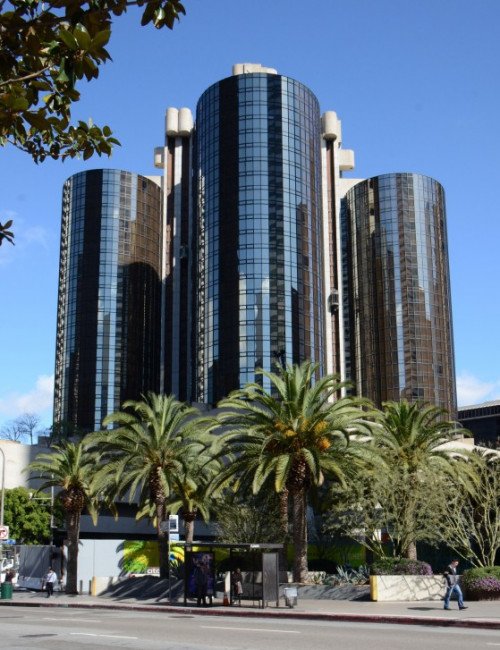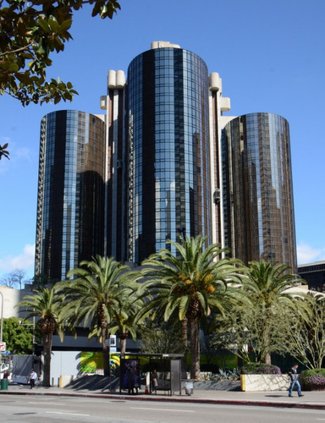You might want to think twice after November of 2024 if you book a room at a Los Angeles hotel.
That’s because voters in the City of Angels by then may have decided on a measure that could impact your vacation, your business trip, or simply taking a break from a road trip.
The measure?
If there are vacant rooms at 2 p.m. on any given day a hotel must report the fact to the city.
The city will then decide whether those rooms will be occupied by the homeless.
You read that right.
The City of Los Angeles will dictate whether a hotel with a vacant room will be forced to have homeless as guests in it.
The city would issue the homeless a voucher for at market room rent and send them to a hotel with vacant rooms.
The measure garnered the necessary 126,000 signatures to make its way to the ballot.
That was after the LA City Council opted not to decide to adopt the measure outright. That 11-1 vote last week assures Los Angeles’ electorate will get to duke it out.
At best it’s a stopgap measure to solve a problem that one can argue may never have close to even a 10 percent solution.
At worst it is a way some voters can soothe whatever guilt feelings they may harbor to force someone to be a part of the solution so they don’t have to be put in such a position.
But before we delve into the concept of how people are always willing to support solutions to problems regardless of how uncomfortable it makes others as long as it doesn’t involve their neighborhood, let’s talk about the practical aspects.
Just how would anyone feel about booking a room at the Hampton Inn Suites, the Hyatt, Best Western or any hotel in Los Angeles and risk sharing a floor with the homeless?
Yes, someone will say that is bigotry at work.
It is also reality.
At the same time there could easily be a legitimate concern about being in a hotel with some homeless.
With how effective bureaucracies can be at screening people the odds are great homeless with mental illness issues, serious addictions, wanted felons, or even severe attitude problems could end up securing a room next to a vacationing family or a business traveler.
And given this is Los Angeles, the district attorney may drop accused felons they won’t let the police lock up off at the Ritz Carlton if they have nowhere else to stay the night.
Again, rest assured such an attitude will trigger a “how dare you raise such a concern” push back.
Fair enough. You shouldn’t judge people by their status of being sheltered or unsheltered.
The reality, however, is people do.
If Los Angeles has a program in place forcing hotels to accept homeless when they have capacities, how difficult of a decision — or inconvenient — will it be for travelers to book a room in neighboring jurisdictions such as Long Beach or Glendale?
It is akin to telling the golden goose to shoo.
Hotels in the City of Los Angeles collect a 14 percent room tax.
This fiscal year that tax is expected to generate $660 million.
That’s around 9 percent of the city’s $7.33 billion in general fund revenue it projects it will collect this fiscal year.
It is also roughly two thirds of the $959 million Los Angeles will spend dealing with the 66,000 homeless on the streets of the city of 3.973 million residents.
Rest assured such a hotel rule will prompt more than a few people to opt to spend the night in hotels outside of Los Angeles.
Bet Great Wolf is happy they located an indoors resort in Garden Grove instead of Los Angeles.
Somehow the prospect of having homeless spend the night in vacant hotel rooms might put a big dent in their family-orientated business.
Then there is the question of fairness.
If Airbnb is allowed to compete with hotels to house tourists, business travelers and short-term guests who may be in town to do consulting work and such, then wouldn’t it only be right that they be included as well in the homeless housing program?
If they don’t have an available home rented by 2 p.m. on any given day, shouldn’t they also be required to accept homeless clutching vouchers issued by the city with a promise to pay market rent?
As for those vouchers, any wild guesses at how cumbersome and slow the process will be for hotel operators to redeem them for actual money from the City of Los Angeles?
The city, by the way, has not identified a funding source for such vouchers.
Perhaps they can slap a 10 percent surcharge on the rooms of paying hotel customers on top of the 14 percent room tax.
Then there are, shall we say, housekeeping issues.
Homeless shelters have protocols in place to address issues that come with living on the street from parasites and pets to what is done with personal belongings.
There is also the real possibility homeless will have more wear and tear on rooms.
And in the event they damage something, who foots the bill?
Anyone who believes the city would cheerfully do so without fighting the issue and forcing claims to be filled obviously have never dealt with entrenched bureaucracy in California.
Then there is the question of whether it makes any sense based on what taxpayers pay for.
A hotel room renting at a market rate of $50 a night generates $18,250 a year if it is always occupied,
At $140 a night it would be $51,110 a year.
There is a Washington state firm that sells prefab 64 square foot “pallet houses” for $6,000 apiece that have sleeping accommodations for two people.
You could house 12 times as many people — assuming two people to a hotel room — by the time you fork over market rate payments on one $50 room and one $140 room over the course of a year.
The Bonaventure— downtown LA’s iconic hotel —was not designed to be a homeless shelter.
Nor do people forking over $159 a night and up for a room at the Bonaventure expect the hotel to be a makeshift homeless shelter.
This column is the opinion of editor, Dennis Wyatt, and does not necessarily represent the opinions of The Bulletin or 209 Multimedia. He can be reached at dwyatt@mantecabulletin.com






